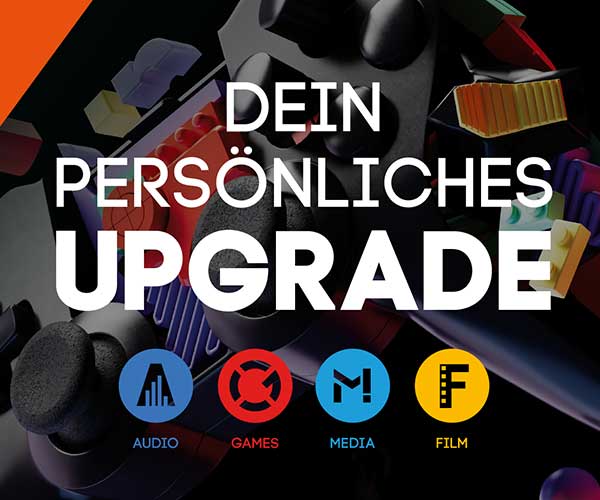Your passion. Your place.
Leidenschaft für Medien – Praxisnah & Branchenrelevant
Seit über 45 Jahren bilden wir Kreative mit praxisnahen Programmen auf Industrie-Niveau aus – weltweit, zertifiziert und ausgezeichnet. Unsere Fachbereiche bieten dir das perfekte Match für deine Leidenschaft, mit modernster Ausstattung und direktem Branchenbezug.
Starte jetzt deine Karriere in der Medienbranche – praxisnah & zukunftssicher!
Du möchtest die Medienwelt von morgen mitgestalten!
Registriere dich kostenlos.









































